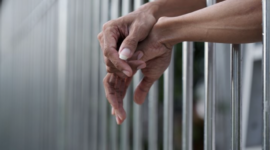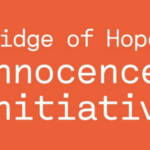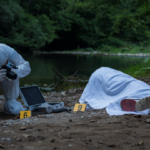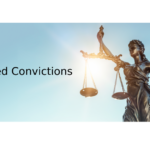When Can a Judicial Inquiry Be Held Into a Potential Wrongful Conviction in NSW?

Last year, New South Wales woman Kathleen Folbigg was pardoned and her convictions were later quashed after a public inquiry found that the science used to convict her of murdering three of her four infants was deeply flawed.
However, Folbigg’s release followed a number of failed attempts at freedom including multiple appeals as well as a separate judicial inquiry in 2019.
Judicial inquiries are a unique avenue to have cases reviewed in NSW, providing a separate means of getting court scrutiny over a potential miscarriage of justice.
The following outlines the circumstances in which a judicial inquiry can be raised, the powers of courts when conducting an inquiry and why the 2019 inquiry in Folbigg concluded that her conviction should stand.
Starting a judicial inquiry in NSW
Under the Crimes (Appeal and Review) Act 2001 (NSW) there are a number of circumstances in which a judicial inquiry may be commenced for a potential wrongful conviction in New South Wales, including:
- A petition to the Governor can result in him or her directing that an inquiry be conducted by a judicial officer into the conviction or sentence, or
- A petition to the Attorney General can result in him or her referring the whole case to the Court of Criminal Appeal, to be dealt with as an appeal under the Criminal Appeal Act 1912 , or
- A petition to the Attorney General can result in him or her asking the Court of Criminal Appeal to give an opinion on any point arising in the case.
- A direct application can be made to the Supreme Court under section 78 of the Crimes (Appeal and Review) Act 2001 (NSW).
The Supreme Court may refuse to commence a judicial inquiry made directly to them if it appears that the matter:
- has been fully dealt with in the proceedings giving rise to the conviction or sentence (or in any proceedings on appeal from the conviction or sentence), or
- has previously been dealt with under previous inquiries or reviews, or
- has been the subject of a right of appeal (or a right to apply for leave to appeal) by the convicted person but no such appeal or application has been made, or
- has been the subject of appeal proceedings commenced by or on behalf of the convicted person (including proceedings on an application for leave to appeal) where the appeal or application has been withdrawn or the proceedings have been allowed to lapse, and
- the Supreme Court is not satisfied that there are special facts or special circumstances that justify the taking of further action.
Procedure of a judicial inquiry
A judicial inquiry is conducted in a similar manner as a Royal Commission, with a judge given broad powers to take evidence in the form of written submissions, informal interviews and form examination of witnesses.
Hearings may be closed or open to the public, depending on the needs of the inquiry.
On completing an inquiry a judge will report the results of the inquiry to the Governor, in the case of an inquiry held on the direction of the Governor, or the Chief Justice of the Supreme Court, in the case of an inquiry held on the direction of the Supreme Court.
In cases of potential wrongful convictions, a judge may refer the matter to the Court of Criminal Appeal:
- for consideration of the question of whether the conviction should be quashed (in any case in which the judicial officer is of the opinion that there is a reasonable doubt as to the guilt of the convicted person), or
- for review of the sentence imposed on the convicted person (in any case in which the judicial officer is of the opinion that there is a reasonable doubt as to any matter that may have affected the nature or severity of the sentence).
Why did Folbigg’s 2019 inquiry fail?
A 2019 judicial inquiry into Folbigg’s guilty is a good example of the pitfalls of an open-ended inquiry.
Although fresh medical evidence was presented to the court indicating that Folbigg’s daughters may have died of natural causes, seperate pieces of evidence, including diary entries by Folbigg, ultimately swayed the judge that the conviction should remain.
Following this decision, almost 100 prominent Australian scientists and medical experts petitioned the Governor of New South Wales to pardon Kathleen Folbigg and a fresh public inquiry was instigating resulting in Folbigg’s eventual pardon.
Appealing a criminal conviction?
If you are you going to court to appeal a criminal conviction, call Sydney Criminal Lawyers anytime on 9261 8881 to arrange a free first conference during which one of our experienced defence lawyers will assess your case, advise you of your options and the best way forward, and fight for the optimal outcome.






